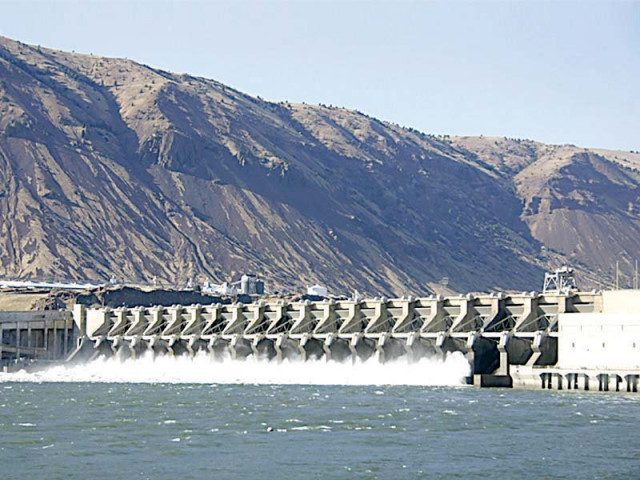World Bank declares Pakistan's $73m water project unsatisfactory
Says project implementation continues to be slow, well behind agreed work plans

In June 2008, the World Bank approved a $38-million loan to improve management and investment planning of water resources in the Indus River system. PHOTO: FILE
The Water Sector Capacity Building and Advisory Services project can be a classical case study, which the World Bank has finally declared as “unsatisfactory” after losing its last hope to revive the scheme. The project had been approved by the Washington-based lender in June 2008.
The original completion date of the project was February 2014, which had been extended to June 2021.
In its latest report on the Water Sector Capacity Building and Advisory Services project, known as WCAP, the World Bank has described progress on the project as “unsatisfactory”, a notch below the previous rating of moderately satisfactory. The report has been made public this week by the World Bank.
The 75-year legacy of IMF and World Bank
The project implementation following the additional financing approved in 2015 continues to be slow and well behind agreed work plans, stated the report.
“The project targets cannot now be met in the time remaining for project implementation,” noted the report. A joint midterm review by the bank and implementing agencies in June 2019 agreed, in principle, on project restructuring and a correction to the amount of IDA credit, it added.
Since 2008 the country has been run by three mainstream political parties - the Pakistan Peoples Party (2008-13), Pakistan Muslim League-Nawaz (2013-18) and now the Pakistan Tehreek-e-Insaf.
Since 2008, the project had been overseen by the Ministry of Water and Power till 2018. Now, the project has been given to the Ministry of Water Resources after the PTI government separated the water division from the power division.
During the 12-year period, there was one common factor in all these governments - the bureaucracy. In its previous reports, the World Bank had also blamed the bureaucracy for the delay in execution of the scheme.
Without achieving any targets, Pakistan spent $40.7 million out of the total loan of $73 million, showed the World Bank report.
The stated project objective was to improve the management and investment planning of water resources in the Indus River basin.
With Pakistan being a water-deficient country, the interventions planned under the loan were aimed at enhancing the economic usage of the scarce resource, improving governance and enhancing technical efficiency.
During the PML-N government’s tenure, the Ministry of Water and Power’s desire to keep control over the project through its grade-21 officer stalled progress on the scheme.
The proposed actions on the institutional capacity building were aimed at timely completion of the current World Bank-funded projects. Project documents showed that due to delay in the construction of ongoing hydroelectric power projects the country’s gross domestic product (GDP) would be 1.36% lesser.
In November 2015, the World Bank approved an additional credit of $35 million to scale up project activities and consolidate the gains made under the initial phase. The board had also extended the project implementation period by five years and five months to allow time for the implementation of new and scaled-up activities.
In June 2008, the World Bank initially approved a $38-million loan to improve management and investment planning of water resources in the Indus River system. However, project implementation was slow in the first three years.
There was a plan to increase the number of modern tools operationalised and used for decision-making from two in 2008 to 13 in 2021. No progress could be made on this indicator until today, according to the World Bank report.
The loan had also been secured to upgrade 90 telemetry stations but not even a single station could be upgraded, said the report.
World Bank restores Pakistan’s budgetary support
The project design included establishing seven decision support tools for water resource management but there was no progress on this target too, stated the report.
Water balance and flow data could not be made accessible to the public, said the World Bank.
The three successive governments could not carry out one assessment for improved operations of the hydraulic infrastructure in the past 12 years. Due to bureaucratic tussles, work on important studies like upgrading capacity of the Federal Flood Commission in managing floods and upgrading of the Master Plan of Flood Management of Hill Torrents of Pakistan was also delayed.
Published in The Express Tribune, February 16th, 2020.
Like Business on Facebook, follow @TribuneBiz on Twitter to stay informed and join in the conversation.


1733130350-0/Untitled-design-(76)1733130350-0-208x130.webp)















COMMENTS
Comments are moderated and generally will be posted if they are on-topic and not abusive.
For more information, please see our Comments FAQ